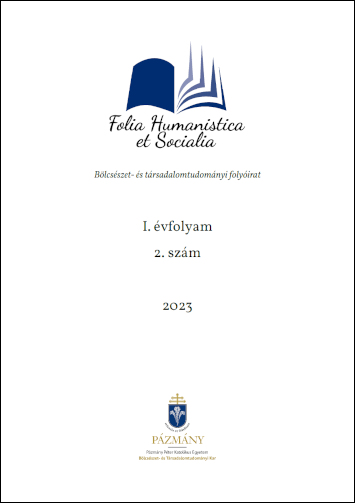Megjelent 2023-12-31 — Frissítve ekkor: 2024-06-11
Copyright (c) 2023 Dechert Adél Eszter

This work is licensed under a Creative Commons Attribution 4.0 International License.
Absztrakt
Számos vita övezi Stephen King Ragyogás című regényének 1980-as adaptációját, melyet Stanley Kubrick rendezett, legfőképp a rendező által eszközölt szembetűnő változtatások miatt. Esszém során a változtatások mögötti okokat igyekszem feltárni, bemutatva a legfőbb különbségeket, amelyek közé tartozik a két mű hangvétele, témái, valamint a befejezésük. Elemzésemben nagy hangsúlyt kap a főszereplő ábrázolása, nemcsak azért, mert ez a legfeltűnőbb változtatás, hanem azért is, mert Jack Torrance karaktere a történet legemlékezetesebb eleme, különösen Kubrick filmjének esetében. Esszémben a felsorolt szempontok segítségével azt az állítást támasztom alá, hogy a filmadaptáció új elemei, rétegei és értelmezései Kubrick a regénytől való tudatos elhatárolódásának köszönhetőek.
Hivatkozások
- Allen, G. (2015). The Unempty Wasps’ Nest: Kubrick’s The Shining, Adaptation, Chance, Interpretation. Adaptation, 8(3), 362-365. https://doi.org/10.1093/adaptation/apv009
- Andrew, D. (1984). Concepts in Film Theory. Oxford University Press.
- Ciment, M. (2003). Kubrick on The Shining. Kubrick: The Definitive Edition, edited by Michel Ciment, Faber & Faber.
- Cook, D. A. (1984). American Horror: ‘The Shining’. Literature/Film Quarterly, 12(1), 2-4. https://www.jstor.org/stable/43797366
- Ghosh, D. (2019). Book versus movie: How Stanley Kubrick’s The Shining’ moves away from Stephen King – and succeeds. Scroll.in, https://scroll.in/reel/927082/book-versus-movie-how-stanley-kubricks-the-shining-moves-away-from-stephen-king-and-suceeds.
- Greene, A. (2014). Stephen King: The Rolling Stone Interview. Rolling Stone, https://www.rollingstone.com/culture/culture-features/stephen-king-the-rolling-stone-interview-191529/5/.
- Hoile, C. (1984). The Uncanny and the Fairy Tale in Kubrick’s ‘The Shining’. Literature/Film Quarterly, 12(1), 5-10. https://www.jstor.org/stable/43797367
- Hornbeck, E. J. (2016). Who’s Afraid of the Big Bad Wolf? Domestic Violence in The Shining. Feminist Studies, 42(3), 692-715. https://www.jstor.org/stable/10.15767/feministstudies.42.3.0689
- King, S. (2000). On Writing: A Memoir of the Craft. Scribner.
- King, S. (2007). The Shining. Hodder & Stoughton Ltd.
- Manchel, F. (1995). What About Jack? Another Perspective on Family Relationships in Stanley Kubrick’s ‘The Shining’. Literature/Film Quarterly, 23(1), 72–74. https://www.jstor.org/stable/43798713
- Nolan, A. (2011). Seeing is Digesting: Labyrinths of Historical Ruin in Stanley Kubrick’s The Shining. Cultural Critique, 77, 180–188. https://www.jstor.org/stable/10.5749/culturalcritique.77.2011.0180
- Smith, G. (1997). ’Real Horrorshow’: The Juxtaposition of Subtext, Satire, and Audience Implication in Stanley Kubrick’s ‘The Shining’. Literature/Film Quarterly, 25(4), 302. https://www.jstor.org/stable/43796810
- The Shining. Directed by Stanley K., Warner Bros., 1980.

